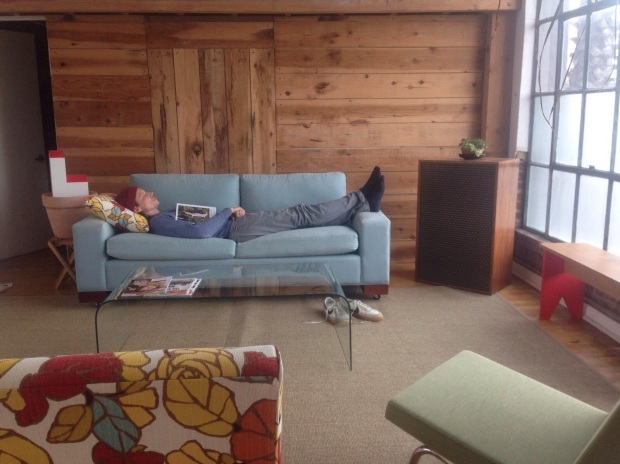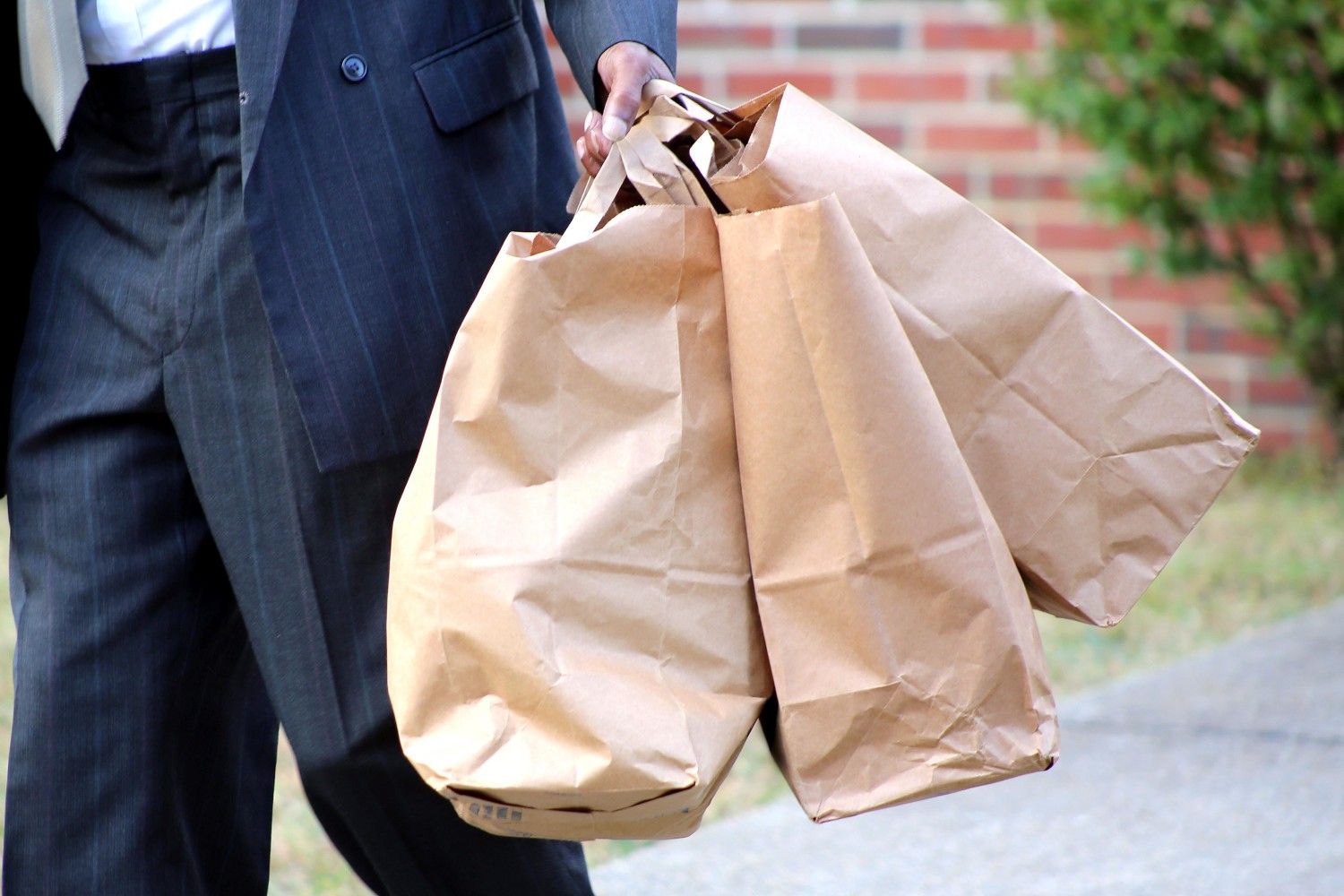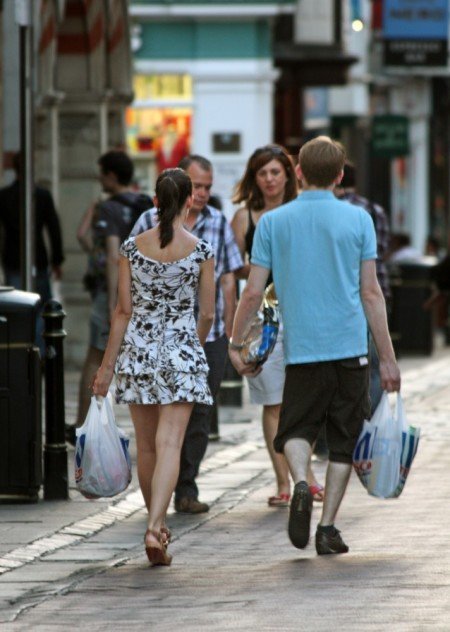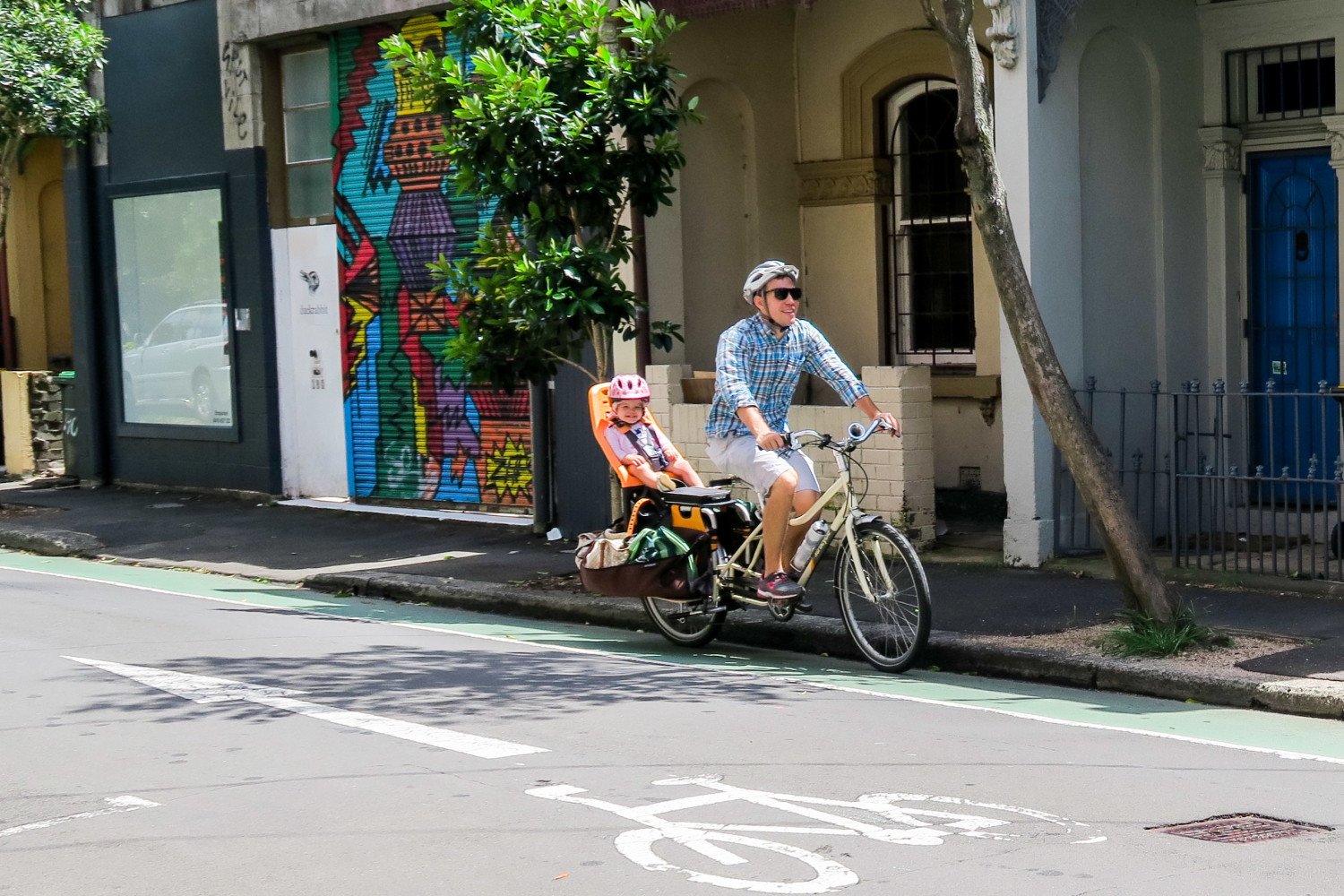What if I told you those were immaterial benefits? There are lots of ways to be eco-friendly, save money, and you can avoid traffic by adjusting your schedule or using public transport.
The real benefits of living car-free are a less cluttered home, reduced stress, increased physical activity, and more family time. That’s a bit more enticing, isn’t it? Now, what if I told you that you don’t need to sell away your car to experience these benefits? We started realizing the benefits of car-free living long before we sold our cars and moved from Charlotte, North Carolina to Sydney, Australia. Our small family of three moved to Sydney in December 2014, and we have yet to purchase a car. True, we live in a city with pretty decent public transport, and a growing network of protected bicycle lanes, but we also began the journey to car-free living back in the home. It was actually on a recent visit that we saw the massive improvements in our quality of life, thanks to car-free living. We spent loads of time during our visit in the car, bought more than we could fit in six giant suitcases, endured a few stressful traffic jams, and put on a few extra pounds. (For full disclosure, it was Thanksgiving.) Through this experience it became obvious to us that living car-free regulates our behavior so that we purchase only the essentials, casually enjoy our commutes, and exercise daily. Upon reflection we discovered that this made us happier, calmer, and healthier, and the best part is we were able to see how this started long before we sold the car. All it requires is a shift in priorities to favor wellbeing over mindless efficiency.
The 3 Simple Strategies to Experience the Car-Free Living Benefits, Without Selling Your Car:
Buy only what you can carry.
You know those half-price granola bars that tasted like cardboard, or perhaps those Halloween pillows that were just to cute to leave on the sale rack by the register? Those are now gathering dust in a closet, pantry, or worse, the trunk of your car, and they clutter up your life. If you limit purchases to what you can carry, you force yourself to make conscious decisions instead of succumbing to the manipulation of strategic retail placement. To implement this strategy, park at the far edge of the parking lot, and carry everything you buy from the store entrance to your vehicle. It is simple: unload your cart at the exit, and physically carry your groceries, homewares, etc. to the car. You will surprise yourself with the mindfulness it adds to your shopping cart, as you begin to think about whether your will be able to manage carrying everything to the car when you see those strategically placed “deals.” Impulse buys will become a thing of the past.
For a couple blocks, take a walk.
Walking is a great exercise in awareness, if you put away the phone, but first, you need to get out of your car. Appreciate and discover where you are in the present moment, notice each step you take, observe the sound of your breathing, and don’t let those frantic moments rescuing your toddler from darting into the street mess with your Zen (I jest). Walking provides time to be present in a way that driving doesn’t. When I walk, I am part of the world. When I drive, I am just speeding past it. Walking is easy to implement into your routine, and the examples differ based on where you live. You could walk to a Sunday brunch spot, your neighbor’s house, the mall, or the gym (I see you, people fighting for the closest spot in the gym parking lot). If you do not live in a residential/suburban area, walk from store to store next time you go to shop at 3 stores on 3 corners of the same intersection. We used to walk from Trader Joes across the street to Target and back. Not only is this a nice way to slow down and take in a bit of exercise, but it also leverages our first strategy of buying what you can carry. Boom! Reduced clutter, reduced stress from mindful walking, and a bit of exercise to boot.
For a bit of a hike, go by bike
Biking is terrific cardiovascular exercise, plus it extends your range and carrying capacity over walking. When we had cars, we worked up to biking for all trips less than 3 to 5 miles, unless it was raining. We love commuting, running errands, and traveling by bike, but it can be daunting for a novice. The first step to a bike trip is connecting with your local cycling community to learn the safest routes. This is often as simple as a Google search, and local bike shops are also great source of information. We had a lot of success connecting with local cyclists through online forums, which is what we did before moving to Sydney, and they are a wealth of information on safe routes and casual (read as Spandex-free) group rides.
Next Steps
These days, vehicle-independence is not just for tree-huggers and hipsters. It’s for everyone willing to slow down and reap the rewards, regardless of where you live. Car-free living unlocks a variety of benefits from improved health to reduced clutter in the home. They are all in reach, as soon as you make a conscious decision to step away from the car – even if it’s just for a moment. Photo Credit: Groceries Bike, Couple Walking Featured photo credit: Living EZ via livingez.us



